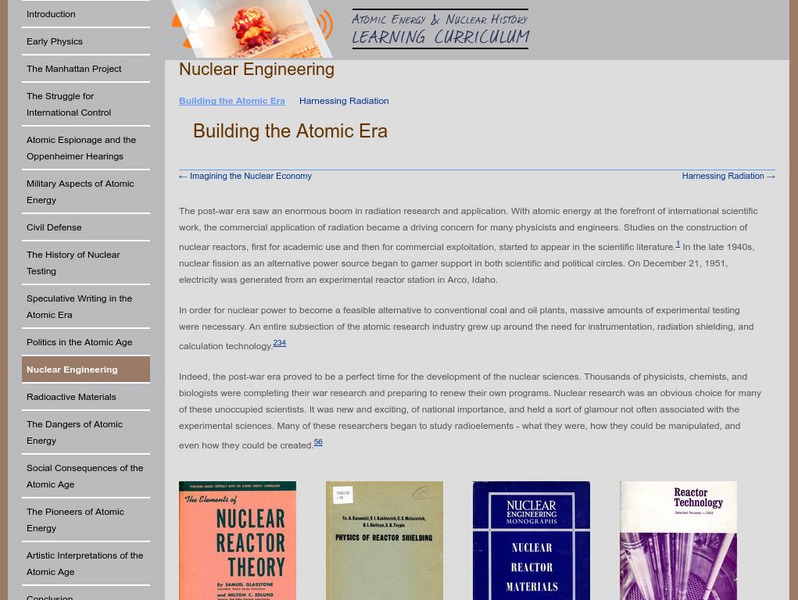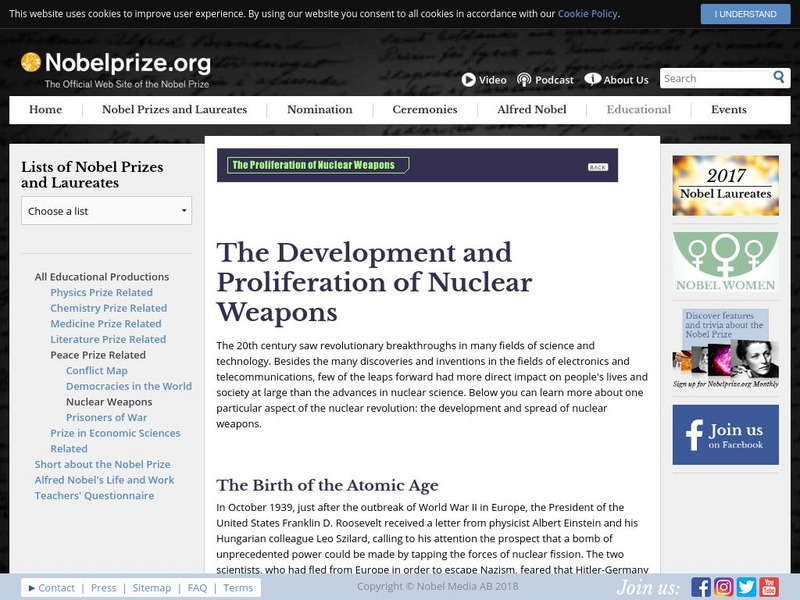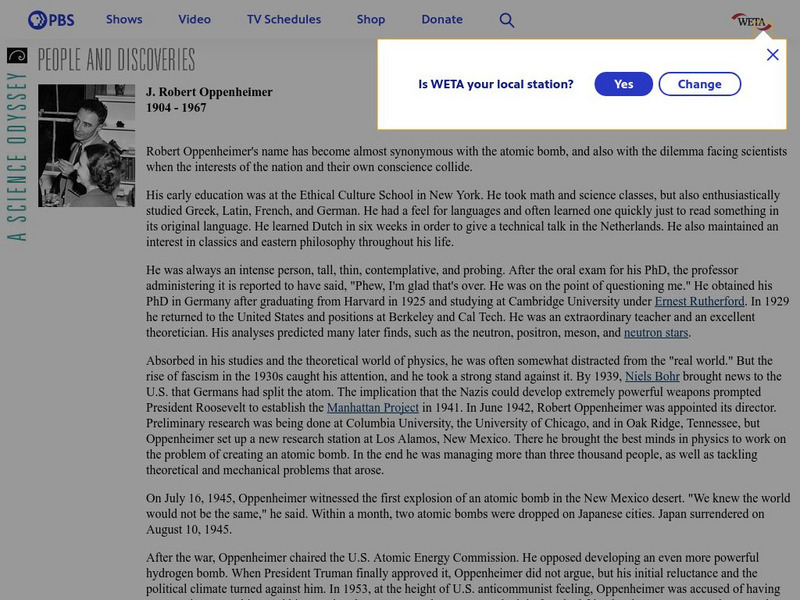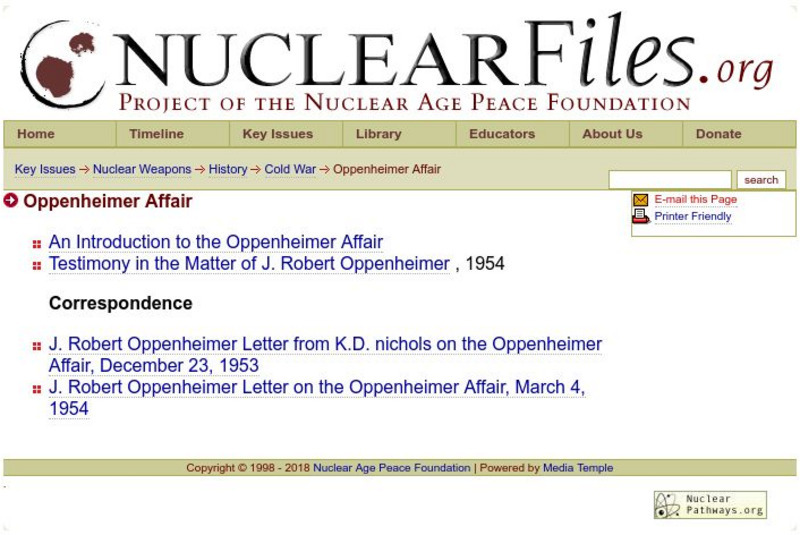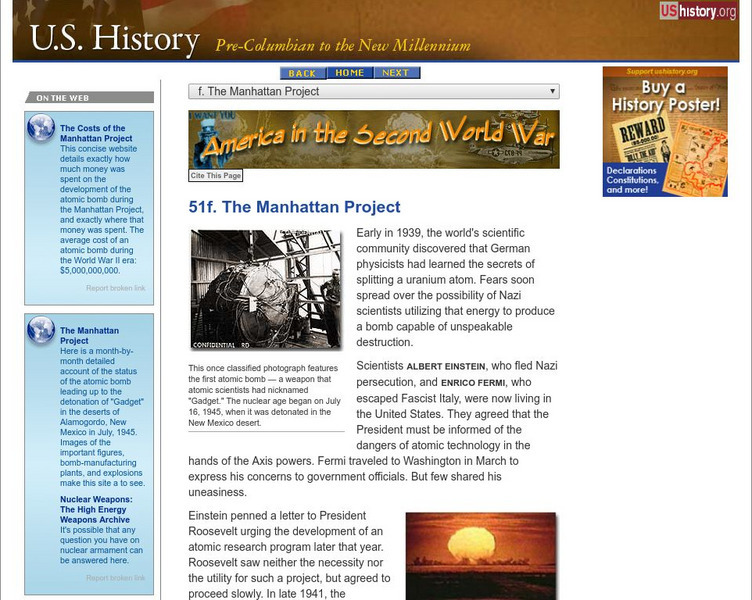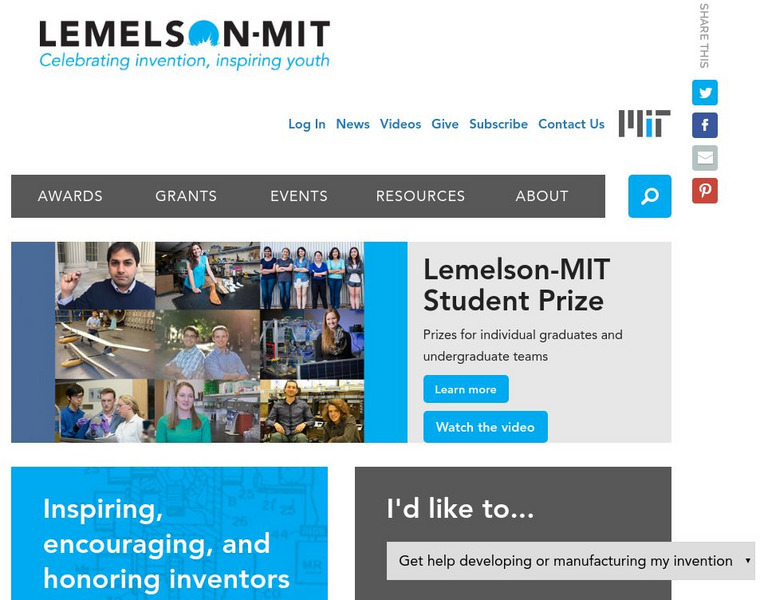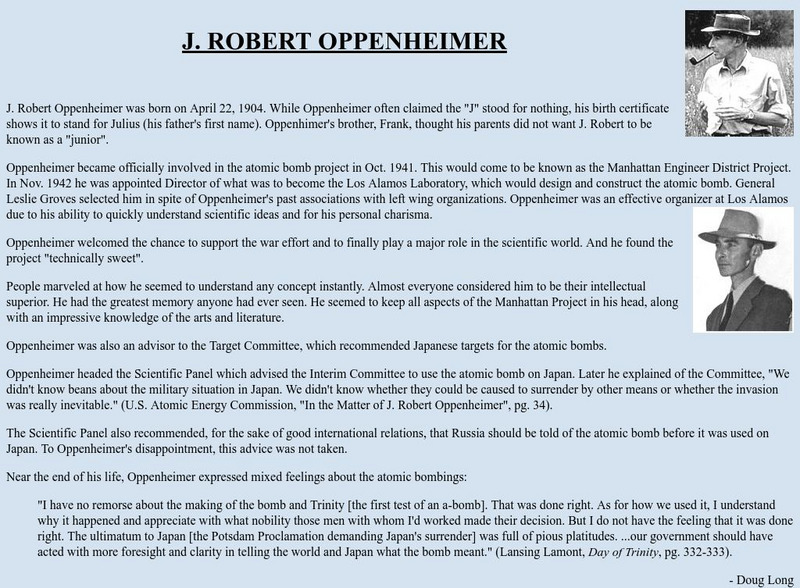Oregon State University
Oregon State: Nuclear Engineering: Building the Atomic Era
Oregon State University Library online exhibit of Nuclear History in America features books on Nuclear Engineering and building the Atomic Era.
Oregon State University
Oregon State: Pioneers of Atomic Energy
Oregon State University Library online exhibit on the pioneers and founders of the atomic revolution.
PBS
Pbs American Experience: Race for the Superbomb
This site explores the Cold War race to develop the hydrogen bomb, a weapon that would change the world. Content details all the people who were involved in the race for the H-Bomb, as well as notable events during this time period....
Other
Nuclear files.org: Julius Robert Oppenheimer
At this site from Nuclearfiles.org you can read a biography of J. Robert Oppenheimer and about his career as a scientist and his important involvement with the Manhattan Project and Atomic Energy Commission.
Nobel Media AB
The Nobel Prize: The Development and Proliferation of Nuclear Weapons
Read about how the atomic bomb was first developed, starting the nuclear arms race. As nuclear weapons proliferated, so did apprehension. A Non-Proliferation Treaty was released in 1968, and governments began to sign on to it. Green...
Other
Los Alamos National Laboratory
The official website of the Los Alamos National Laboratory. You will find the history of the laboratory as well as many of the key figures. There is also an interactive history of the Manhattan Project. Be sure to check out the photo...
Wikimedia
Wikipedia: J. Robert Oppenheimer
This biography from the encyclopedia Wikipedia of physicist Robert Oppenheimer discusses his education, his creation of the atomic bomb, and later, his opposition to the use of the bomb.
Stanford University
Stanford Report: Edward Teller, Father of Hydrogen Bomb
Students don't generally learn much about Edward Teller in school. But with the progress in science in the 20th century, maybe they should. Edward Teller was one of the main architects of the hydrogen bomb. This is a great site by...
PBS
Pbs: J. Robert Oppenheimer 1904 1967
This site from PBS provides biographical information about J. Robert Oppenheimer, and his involvement with the atomic bomb.
Other
Nuclearfiles.org: Oppenheimer Affair
This site from Nuclearfiles.org allows you to read about Robert J. Oppenheimer's role in the Manhattan Project, as head of the Atomic Energy Commission and then his dismissal as a "security threat" to the U.S. government during the era...
Oak Ridge National Laboratory
The Forties: War and Peace
Describes the design of the first nuclear reactor by Enrico Fermi and his successful development of a self-ustaining nuclear chain reaction. Describes the evolution of the Manhattan Project and their race to develop the first atomic...
Khan Academy
Khan Academy: The Manhattan Project and the Atomic Bomb
Discusses the Manhattan Project of the United States which worked on developing nuclear weapons during World War II. It led to the two atomic bombs that were dropped on Japan in August 1945, ending the war with Japan.
Science Struck
Science Struck: History of the Atomic Bomb
Describes the history of the invention of the atomic bomb, its use in World War II against Japan, the impact on people who were targetted by it, the immediate and long-term impact on generations of people, the effect on communications,...
Independence Hall Association
U.s. History: The Manhattan Project
Read about the Manhattan Project, the United States' attempt to create an atomic bomb before the scientists in Nazi Germany were able to.
Massachusetts Institute of Technology
Mit: Inventor of the Week: J. Robert Oppenheimer
Credited with the creation of the atomic bomb, Robert Oppenheimer opposed the development of the hydrogen bomb. Read about Oppenheimer's education and involvement in the atomic explosions, which "changed the world forever."
Other
Necessity of Hiroshima: J. Robert Oppenheimer
This is a short biography of J. Robert Oppenheimer provided by a personal site from Doug Long. Included is a quote of his reaction to the use of the atomic bomb several years after the war.


